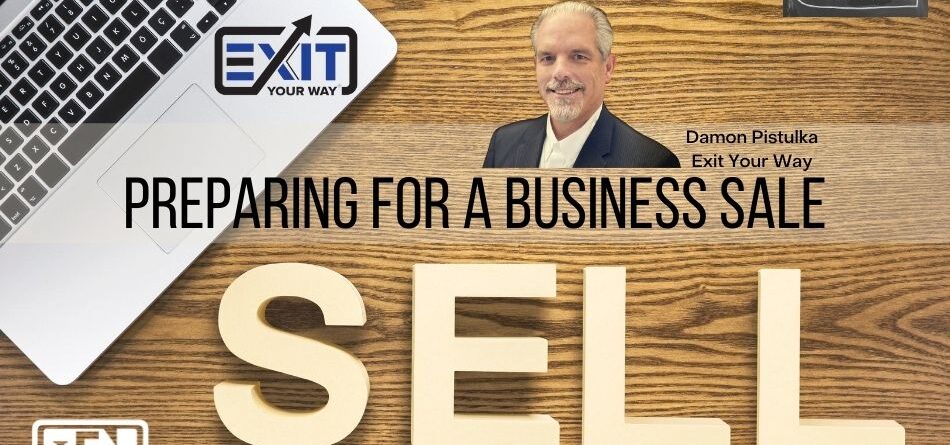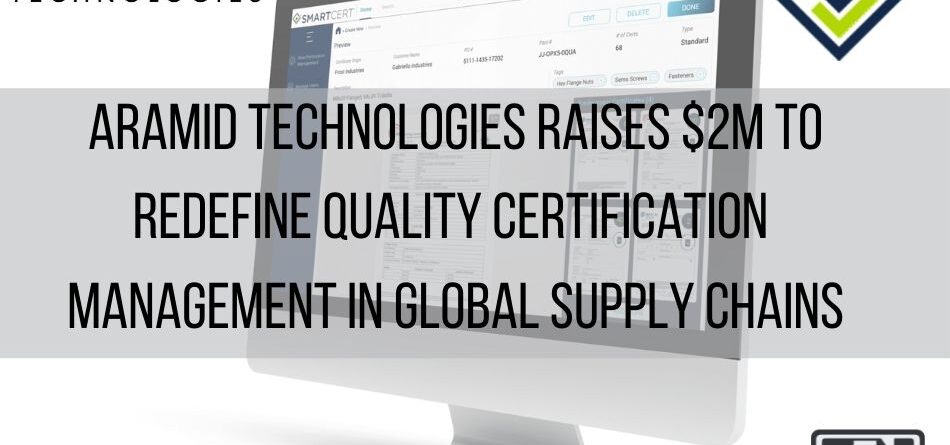Preparing for a Business Sale
Written by:
Damon Pistulka, Exit Your Way®
“Helping build businesses that make more money today and can be sold or succeeded when owners are ready”
As the owner of a business, you have probably worked very hard and dedicated years to your business, getting to the end only to find you have not created a business that can be sold is an extremely disappointing experience, and it happens far too often.
In fact, the average success rate of selling a business is about 25%. Yes, that is not a typo. You have a 1 in 4 chance of selling your business on average. The good thing is with proper preparation you can drastically increase the business sale success rate to over 90% and have the probability of increasing your business value by 2X or more.
In the end it is well worth the time and effort to prepare your business for sale!
You may think because your business has given you a great income for many years that someone will want to buy that. That is simply not the case. Your business buyer’s viewpoint is going to be much different from yours. They have different concerns and challenges that you do. Understanding your buyer’s perspective clearly gives you key insights into what business changes are needed to maximize the chance for a successful sale.
Here are the 5 key areas that will help prepare your business for a successful sale.
- Growth rate – Your buyer wants to see themselves in a business they can grow and thrive in for years to come. Put a solid growth plan in place and be executing it with results, showing the new buyer there is potential and the business is taking advantage of it. Work on growing your business like the sale depends on it because it likely will. Every business has potential but, those opportunities must be partially realized if you want to make your business more attractive to the buyer.
A business that is growing at a strong pace will sell faster and for more money. Strong growth also gives owners leverage in the business sale process because buyers understand they need to get an offer in before the price goes up and they are missing out on the value increase. A business with declining sales will likely not sell, sell for near liquidation prices, or sell with poor terms. It’s worth the work to get your business growing aggressively!
- The “most probable selling price” (market value) of the business – The selling price is ultimately not what you want (or need), it is the price someone will pay. A value specifically generated for your business by a valuation expert is invaluable in understanding the market price range.
- There are two myths I want to dispel before we go any further.
- Putting your business on the market with a price significantly higher than market is a one-way trip to the land of disappointment. Overpriced businesses are not flooded with lower than asking price offers, they are simply passed over by buyers.
- Buyers simply cannot pay significantly higher than the most probable selling price. Buyers have investors with investment return criteria, banks with debt coverage rations, and their own risk/return limits. Educated buyers know what they should pay, the maximum price they can pay (and terms) and when it is time to walk away. Your price is set largely by banking and investor return requirements not the discretion of the buyer.
- There are two myths I want to dispel before we go any further.
When it comes to pricing your business. Price it right to sell it. If the value is not high enough, run it longer and build value. Don’t waste time overpricing your business.
- Know the deal terms you will accept – Deal terms are often more important than the price. A $10 million offer is not necessarily equal to another $10 million offer until you consider deal terms. Businesses are often purchased with a combination of cash from the buyer, a seller’s note, equity from the buyer rolled into a new company and bank loans. Deal terms vary significantly from business to business. Understanding the deal terms allows you to understand the actual offers much better and compare them. Here are 6 deal term definitions so you can better evaluate offers.
- Cash at closing. How much are you going to get the day the business sale is closed? This is the amount “down”.
- Seller’s note. Part of the sale price may be paid over time in a “seller’s note” which is basically a promissory note you will give to the buyer that they will pay back over the specified period.
- Working capital. In many deals working capital may be included as part of the deal. This can be included with or added to the price of the business.
- Equity rolled forward. Part of the purchase price may be “paid” with ownership interest in the company going forward. Buyers often like to use this in the situation where ownership may be able to provide significant help in building the business in the future to align interests. Owners with a desire to take some money out of the business but still participate often use this to increase their overall earnings from the business sale.
- Earn out. An earn out is simply a payment(s) over time when the company hits predetermined milestones.
- Seller non-compete. You will be expected to sign a non-compete agreement with the buyer for a period after the sale of the business. If you are not getting out of the industry completely you want to be very clear on what is acceptable to you.
- Hold back escrow. Sometimes buyers want to place money in escrow to cover things like obsolete inventory, to cover outstanding legal obligations, etc. This is money put in a special account that cannot be released by either party until they agree the conditions are met.
If you are more flexible with the deal terms you can expect money more in total. The important part in the deal terms is to get your minimum acceptable terms in stone and knowing the risks before you start negotiating the deal.
- Address risks discovered in the business valuation – A comprehensive business valuation identifies risks that might derail a sales like high dependency on a single customer, supplier, or the owner leaving after the sale, management team depth, etc. These can kill the sale of your business.
Once the valuation is completed, go through each of these and assess the risk from the buyer’s perspective. Ask your investment banker which risks will likely kill the deal and do not start marketing the company until these are addressed.
Business sales are often derailed by risks that could have been mitigated by the sellers. Each risk creates doubt about the business overall and will stop buyers cold even if you address them after they bring them up. It is key to eliminate, mitigate, or minimize as many of these risks as possible ahead of the buyers looking at your company.
- Support all claims with documentation – Documents need to prove everything relevant to establish value & new opportunities. Financials, tax records, environmental studies, bank statements, corporate documents, supplier records, and customer agreements all need to be ready for review.
The sheer amount of information that must be produced for the sale of a business is frustrating for many business sellers. As the price of the business goes up the sellers will have to provide more information. There are many times sellers may need to conduct third-party assessments to complete a sale. Your investment banker can help you identify and prepare for this ahead of the sale. Do not skimp on having your documentation gathered, organized, and electronic so it can be reviewed easily. Make the verification job easier and you will increase the chance of sale significantly.
One final thing worth noting when considering a business for sale. Business sales take time. There are very few shortcuts because of the extent of the investigation in diligence and bank funding process. It will take about 1 year from the time you engage an investment banker to sell you business to get it sold. A quick sale (6 months to 1 year) might happen if you try to sell for well below market value. If you have a lot of preparation work to complete, you should expect 24-36 months in total.
ABOUT DAMON PISTULKA
Helping business owners translate goals into real world results, Damon is focused on identifying and executing opportunities to increase business revenue, profitability, and value. With 20+ years building and managing businesses in extreme conditions and diverse industries, Damon’s drive to help clients reach their goals helps them crush competitors and dominate markets. The proven framework Damon and the Exit Your Way® Team developed and used successfully in private equity owned companies is being used to drive high growth results.
In the sale of client businesses, Damon utilizes the intimate knowledge of the private equity buyer’s desires & client businesses to clearly articulate the opportunity, so buyers see the true value.
Damon Pistulka grew up on a large Midwestern family farm. Damon worked his way through college and earned a Mechanical Engineering degree. During and after college he worked in an injection molding company in technical and managerial roles including designing, building, and operating facilities. Damon went on to manage businesses in the design and production of retail store fixtures, custom fabricated metal products, advanced aerospace components, and high-tech devices.
Ultimately Damon developed his skills as a business operations and value improvement specialist. Damon is an expert at engaging internal & external teams to develop solutions that drive business success. He continues this work today with Exit Your Way® clients scouting the path and keeping them on track while they work towards their goals.
Damon has helped business in manufacturing, eCommerce, construction, healthcare, and other industries achieve their business goals and successfully exit their companies.
“If you are going to go through the countless hours of work, do what it takes to be your best”
Damon helps owners grow profits, run efficiently, create businesses that fill life and legacy goals, and sell those businesses when they are ready.
Contact details
Phone: 425-654-7757
RELATED CONTENT:
S.W. Anderson Company Makes Two Fastener Company Acquisitions








